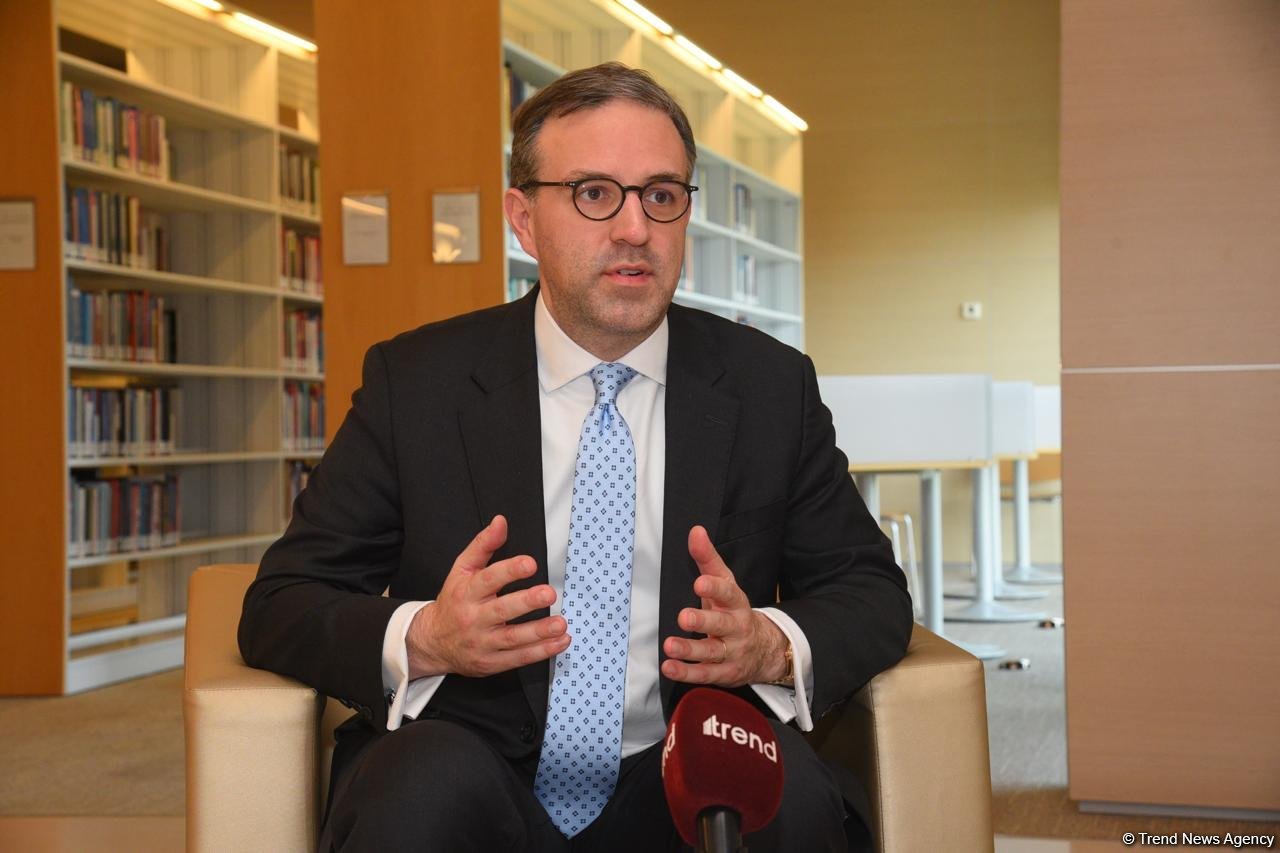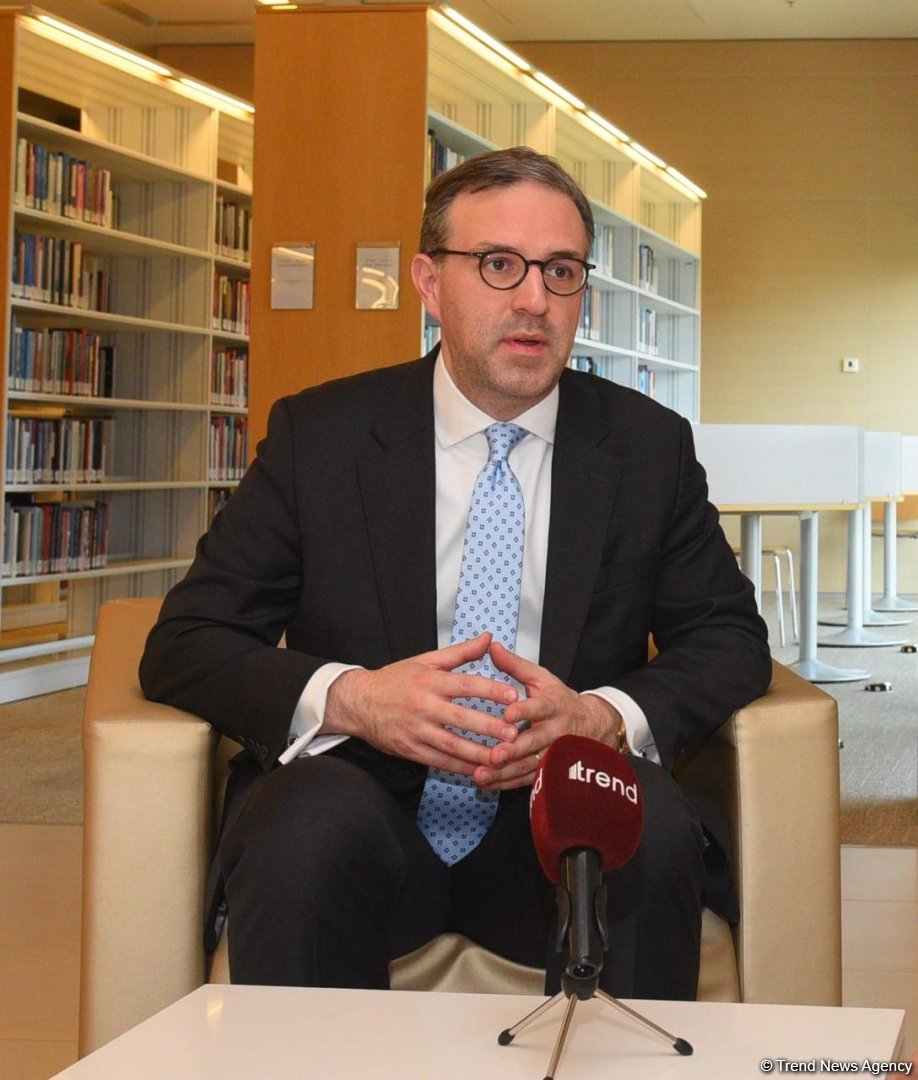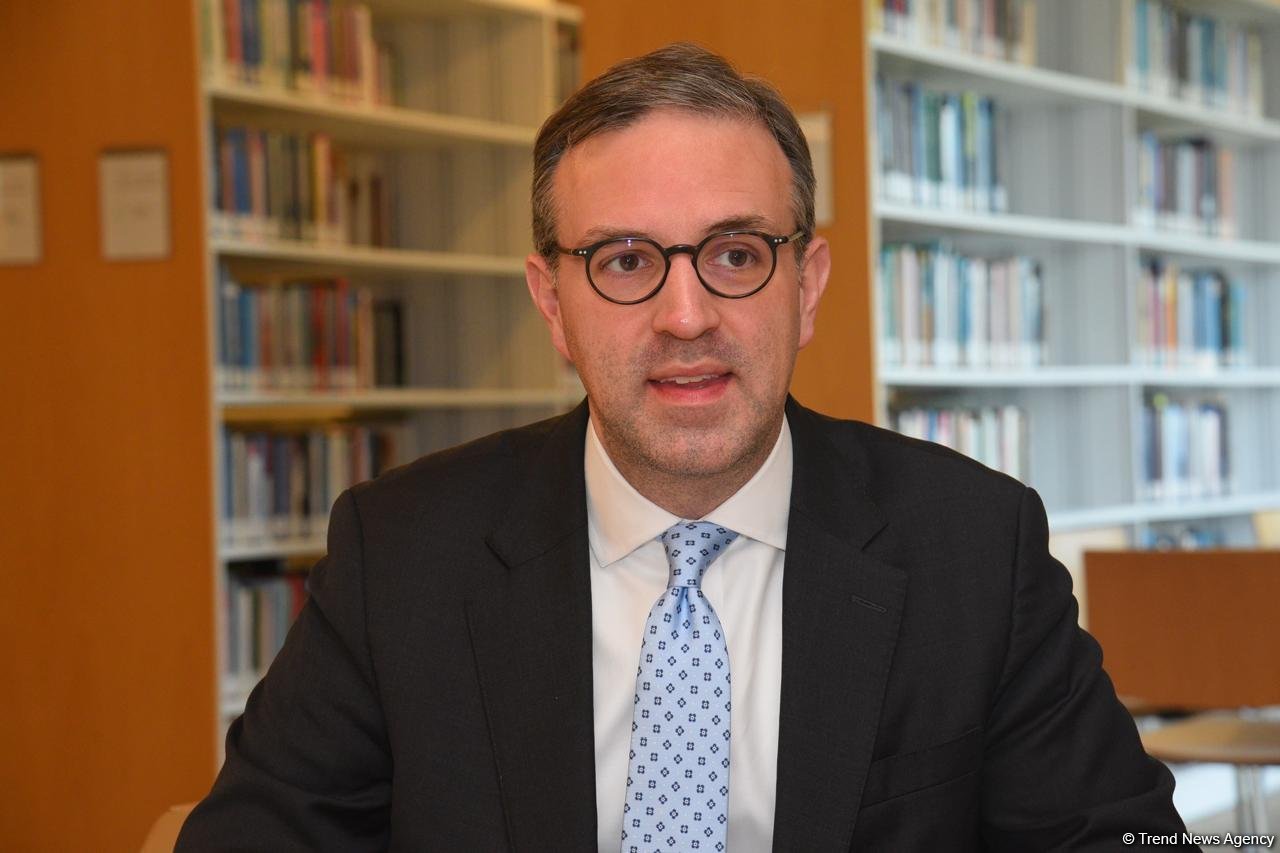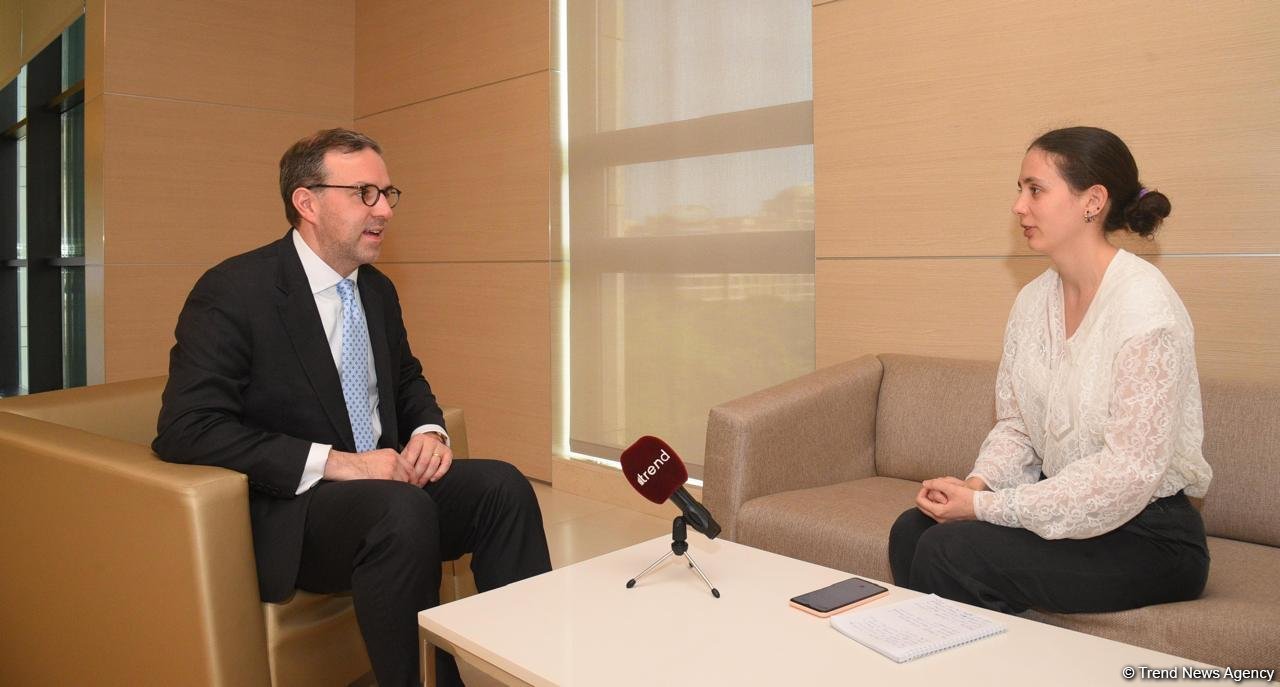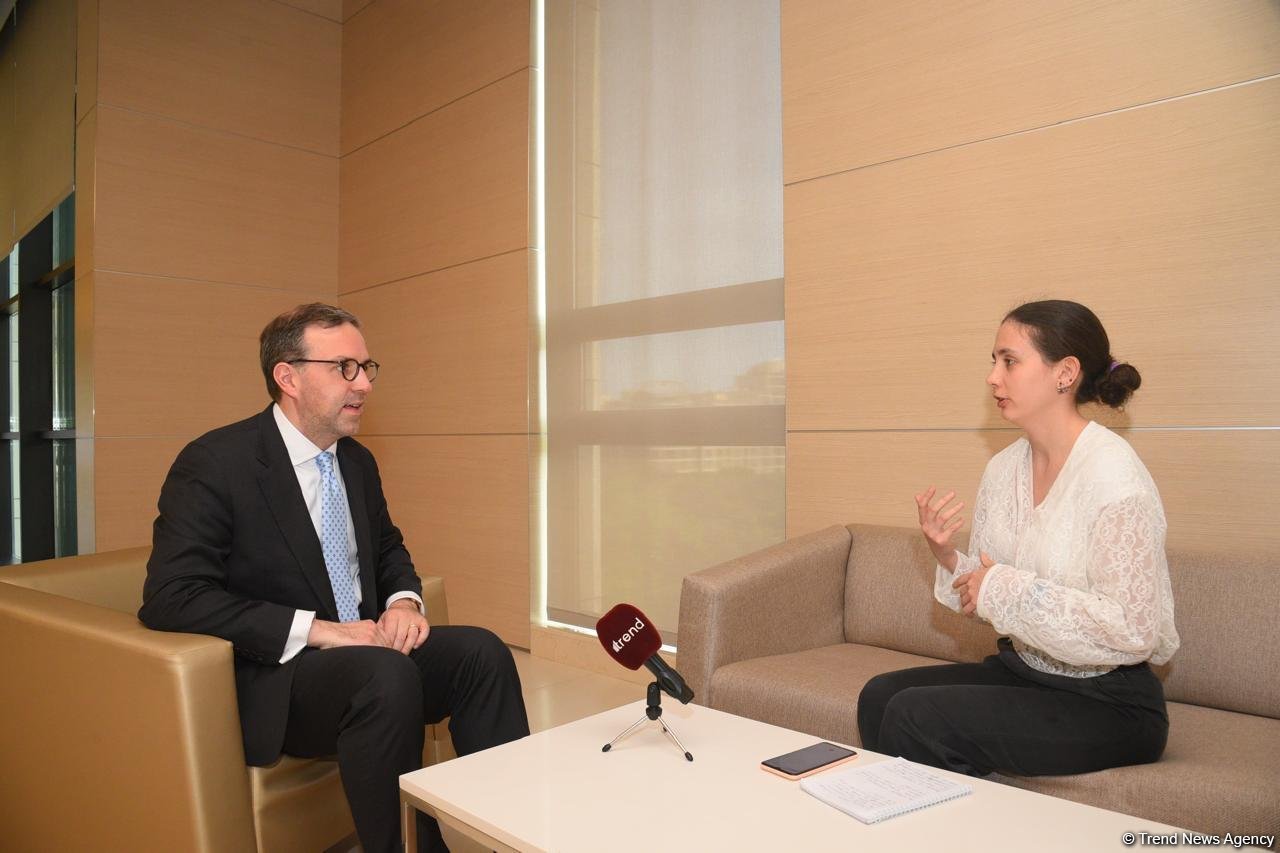BAKU, Azerbaijan, May 7. Hungary is very interested in heightening its economic relationship with Azerbaijan, President of Hungarian Institute of International Affairs Gladden Pappin told Trend in an exclusive interview.
Pappin noted that there is very close cooperation between Hungary and Azerbaijan, which escalated to the level of an enhanced strategic partnership in 2023. This relationship goes much deeper for Hungarians. Hungary, as a member of the EU, has a deep cultural heritage in Central Asia. Since 2018, Hungary has been an observer member of the Turkic Council and the Organization of Turkic States. It feels a very deep cultural connection with Azerbaijan and the other members of the Organization of Turkic States.
“Hungary's cultural and historical connections to the region make it very interested in heightening its economic relationship with Azerbaijan. There are a number of important Hungarian companies that operate in the country. There's a significant annual trade turnover, and there have been a number of mutual initiatives, particularly related to energy, in the last few years,” he said.
Pappin mentioned that both countries occupy important spots on the transit routes between East and West, and as a result, they share similarities in this sector too. They both serve as a kind of gateway between the West and the East, and in recent decades, they have fought hard for and restored their national sovereignty. So they share a similar spirit, experience, and positioning in the contemporary geopolitical environment. For all of these reasons, the relationship has become very strong.
Talking about transportation links between Europe and China, Pappin noted that the capacity of the Middle Corridor has increased significantly in the last couple of years.
"The Middle Corridor runs straight to and through Hungary. Therefore, Hungary is at the western end of this route, connecting it to China. The connection between Hungary and China is very strong. There are a number of Chinese industries that operate in Hungary, and those are growing and becoming more significant. A significant portion of Hungary's imports come from China and play a role in Hungary's manufacturing process. So, for that reason, the increased capacity of the Middle Corridor is extremely important,” he said.
Furthermore, he observed a dramatic acceleration in Hungary's desire to acquire energy from Azerbaijan over the last few years. That has led to a number of proposed infrastructure and transportation projects between Hungary and Azerbaijan, including an undersea electric cable that will transport green energy to Hungary.
"But the logistical projects are quite complex and will involve a lot of different partners over the next few years to fully come into existence. Minister Peter Siyarto pointed out that Hungary's goal is to have up to 10 percent of its energy needs supplied by Azerbaijan in the not-too-distant future. It is a goal; nevertheless, the agreement last year to realize the initial transportation and shipment of energy and natural gas to Hungary has already begun to be realized," he said.
Speaking about green energy, Pappin noted that Hungary has been undertaking elements of its own green transition in the last few years in a moderate way that will primarily respect the energy needs of Hungarian households. So it doesn't want to undertake that transition in a way that would be disruptive to them. In general, Hungary aims to serve as a major transit hub for goods, energy products, and green energy projects between Azerbaijan and the European Union.
"The fact that the COP29 conference will be held in Azerbaijan, as an oil-producing country, is a sign that the old contrast between traditional fossil fuel extraction and green energy production is somehow changing, and that it's possible to pursue and support elements of the green transition and aim to, as much as possible, have a clean economy while not abandoning the traditional sources of energy extraction," he said.
The Institute for Development and Diplomacy (IDD) organized Pappin's lecture at ADA University. He delved into Hungary's perception of the evolving global landscape, highlighting its distinct viewpoint as a nation within the EU, situated at the crossroads of the West and the East.
"Hungary is very attuned to the need for maintaining an open and cooperative world economy, especially within Europe. This entails economic cooperation not only with the US but also with China and as many other partners as possible," he said.

